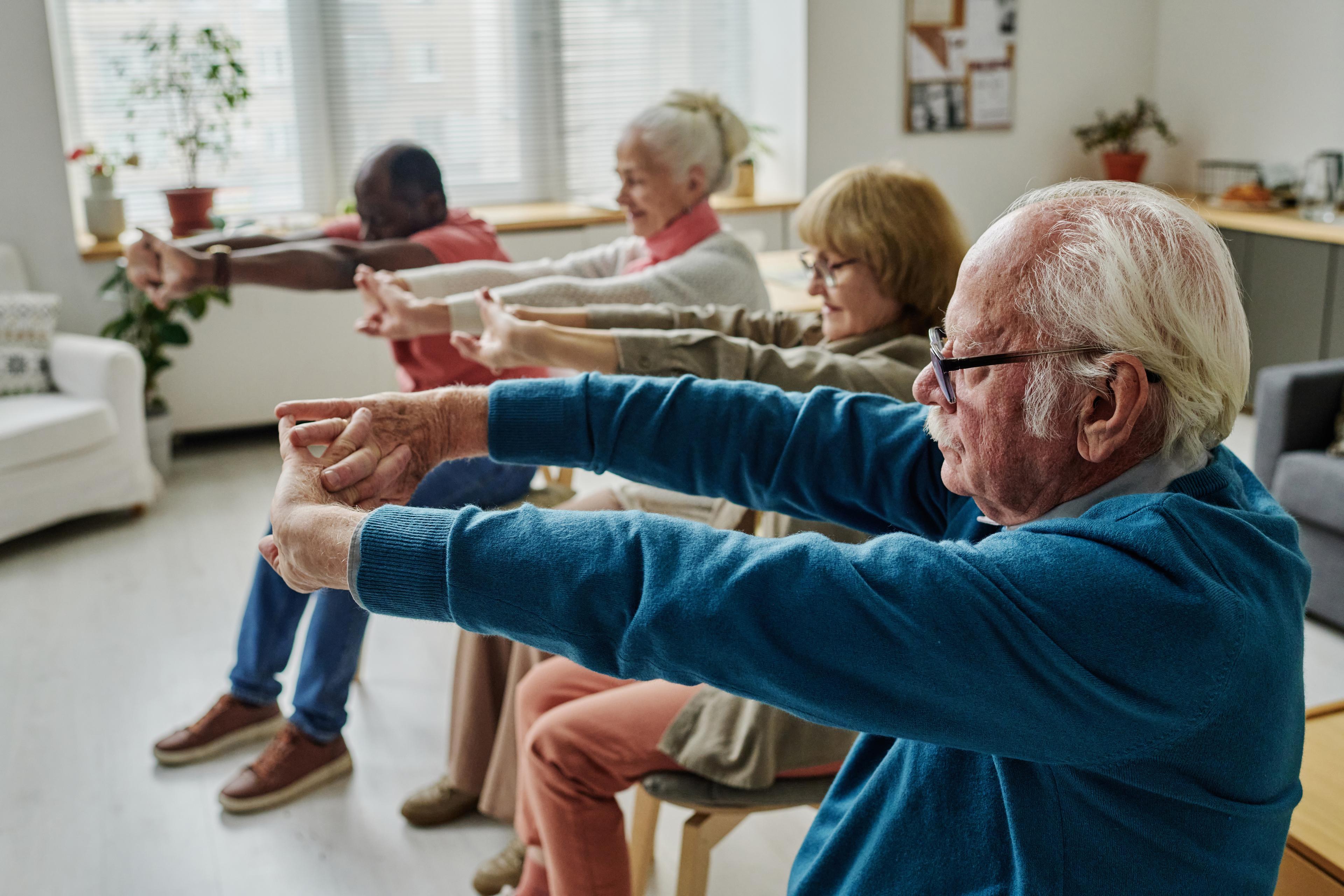Physical Activity and Older Adults
Shandra Martinez
| 3 min read

Regular physical activity is one of the most important things you can do for your health, especially as an older adult. It can prevent or delay many health problems that can come with age. It also helps your muscles grow stronger so you can keep doing your day-to-day activities without becoming dependent on others.
Physical activity for seniors is crucial for several reasons:
Health benefits
Regular physical activity can improve overall health and well-being in seniors. It helps maintain a healthy weight, lowers the risk of chronic diseases — such as heart disease, diabetes and certain types of cancer — and strengthens the immune system.
Improved cardiovascular health
Engaging in physical activity helps maintain cardiovascular health by strengthening the heart muscle, improving blood circulation and lowering blood pressure. It reduces the risk of heart attacks, strokes and other cardiovascular diseases.
Increased strength and mobility
Aging often leads to a decline in muscle strength and flexibility. Regular physical activity, including strength training and flexibility exercises, can help seniors maintain and improve muscle strength, joint mobility and balance. This reduces the risk of falls and injuries, improves posture and enhances overall physical function.
Enhanced mental health
Physical activity has significant positive effects on mental health in seniors. It can reduce symptoms of depression and anxiety, boost mood and self-esteem, and promote better sleep patterns. Regular exercise also stimulates the release of endorphins, which are natural mood elevators.
Prevention of cognitive decline
Studies suggest that physical activity can help reduce the risk of cognitive decline and dementia in older adults. Exercise promotes better blood flow to the brain, stimulates the growth of new neurons and improves memory, attention and problem-solving skills.
Social engagement
Participating in physical activities such as group exercises or sports provides opportunities for social interaction and engagement. This helps combat loneliness, enhances social connections and improves overall mental well-being.
Increased independence
By maintaining physical fitness and mobility, seniors can preserve their independence and perform daily activities without assistance for a longer duration. Regular physical activity helps seniors maintain their ability to carry out essential tasks, such as dressing, bathing and household chores.
It’s important to consult with your doctor before starting any new exercise regimen to make sure it’s suitable for your individual needs and medical conditions.
The Centers for Disease Control and Prevention (CDC) recommends that adults 65 and older need at least 150 minutes a week of moderate activity, such as brisk walking, or 75 minutes a week of vigorous activity, such as hiking or jogging. The CDC also suggests that weekly workout includes two days of activities that strengthen muscles and three days of activities to improve balance.
Learn more about the benefits of physical activity for older adults in this Blue Cross® Virtual Well-Being webinar. You can also sign up for future employer-focused and general interest webinars here, where you’ll find past sessions and resources.
Photo credit: Getty Images





